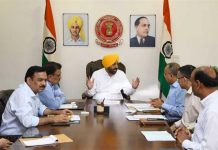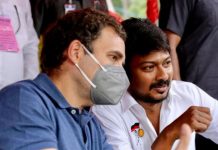
Another 46 percent of equity was through the OFS-SE (offer for sale through stock exchanges) route. According to Prime Database, an analytics firm, it is used “primarily for helping promoters of already-listed companies in complying with the minimum public shareholding requirement”. In 2010, SEBI, the stock market regulator, said that public or individual investors should hold 25 percent of the shares of privately held listed firms. Clearly, funds through OFS-SE are a one-off spike since the route would no longer be in vogue once all the listed firms have adhered to SEBI’s norms.
Since domestic money is more crucial than foreign inflows and private investment is not forthcoming, CRISIL feels that the investment outlook for 2015-16 hinges on public investment: “It’s here that infrastructure… comes into the picture because spending on it has a significant multiplier effect of creating demand (in select sectors)… and spurring investments in the manufacturing space as well.” In his second Budget, Jaitley agreed that hiking public expenditure was the key to revive growth.
Trickle-down failure
While he was the Gujarat chief minister for over 12 years, Modi learnt a few important economic lessons. If the overall policy direction were growth-oriented, the benefits would percolate down to the poorer sections within years. If investments were encouraged, they would spur employment, hike incomes and raise the prosperity of all the sections of society. He saw to it that everyone down the decision-making hierarchy from state bureaucrats to district collectors followed his policies.
He expected the same when he became the prime minister. “This hasn’t happened at the state levels. Although grandiose policies were announced by the Centre, the state administrations care two hoots about them,” says a businessman with interests in real estate, construction and hospitality. He adds that he still needs ‘idiotic’ clearances and cites the example of a resort he plans to build in Maharashtra.
“My property was deemed ‘commercial’ a few years ago. So, I expected that I only required permission for water and electricity usages, and the requisite building clearances to adhere to the existing rules,” he says. “I was shocked, however when I was asked to take an environment go-ahead, as also an okay from the MMRDA (Mumbai Metropolitan Regional Development Authority).”
He questioned that if his property was in the environment- sensitive zone, why was it deemed to be commercial in the first place. However, the cake was taken by the logic that the MMRDA gave. The authority said that although the region where the specific property was located was not under its Master Plan, it may be included over the next 50 years. So, any property in any region, which could fall under MMRDA over the next few decades, required building permission from it. That was it. Such bizarre and inexplicable rules still exist in most sectors when it comes to state-level clearances.
Leading businessmen contend that corruption has reduced dramatically among the top bureaucrats at the Centre. However, it thrives at the lower levels, and especially among the state-level officials. “Even the lowest-level corruption among the peons and clerks, which should be the first to vanish, still continues,” says an entrepreneur. “Although overall bribe rates have come down, this may have to do more with the state of the economy. Businessmen today are willing to wait, rather than give huge bribes.”
Clearly, Modi has a long way to go before he can stop for a breath, forget about rest. In the beginning, his supporters said it was too early to expect instant results. Later, they maintained that one year is too short a timeframe to transform the elephant that India was. But as Parekh said recently, “a little bit of impatience was creeping in” within the business community. Instead of trying to muzzle such criticisms, it is probably time for Modi to remember a popular slogan during the Emergency — “talk less, work more”.
editor@tehelka.com













